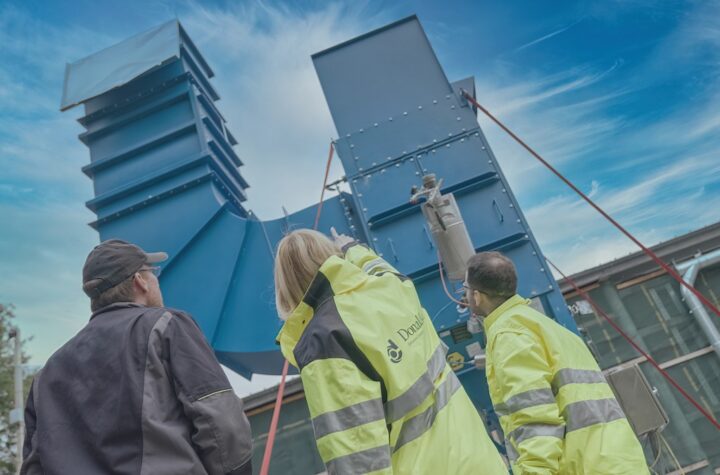
Having a home market advantage is helping Argentian gas transportation specialist Kioshi Compresion expand into the world market for compressed natural gas, which is expected to grow to 400 billion cubic meters by 2020.
Argentina has around two million natural gas vehicles on its roads. Kioshi Compresion started manufacturing CNG cylinders in 2003, and has since expanded its range into variants for export. Their manufacturing facilities in Lanús, near the capital Buenos Aires, produces a various cylinders for NGVs, ranging from 232mm to 406mm. Today, nearly 50% of Kioshi Compresion’s production exported to the United States, Italy, Holland, Colombia, Peru, Bolivia, Mexico, Venezuela, Bangladesh, Pakistan, Egypt, Thailand, Nigeria, Mozambique and Indonesia.
The company extensively tests its processes and materials with leading universities, and is proud if its numerous accreditations including the ENARGAS, IGA, Bureau Veritas, and the ISO-11439, ECE-R110, NGV-2, US-DOT FMVSS-304, ISO 4705, the IRAM 2526 and the ISO 9000. Kioshi is the only Latin American cylinder producer that is certified for the US and CE markets.
Rising global demand for CNG is attributed to its 70% lower cost than petrol or diesel, its cleaner emissions, the affordability of the technology, as well as its vast reserves in countries such as the US, China and Iran. To meet the demand, Kioshi Compresion is already expanding its facilities with a second unit, which will double the current production capacity of 12,000 cylinders a month. The company also has plans to open a new production plant abroad, and has signed an agreement with one of the biggest international oil companies for this purpose.
Automotive Industries (AI) spoke to Juan Moreno, CEO of Kioshi Compresion, and asked about government support for CNG in Argentina.
Moreno: The National Plan for Fuels Substitution developed by government is orientated to replace petroleum usage with natural gas due to the country’s large gas reserves. For the last nine years, CNG has been fixed at a low price, and the supply has been guaranteed even during the coldest time of winter (some imports of LNG were required). In addition, the pipe network was enlarged last year reaching more cities. Today, more than 20% of vehicles in Argentina are powered by CNG.
AI: As CNG is a highly pressurized fuel, is it more dangerous than fossil fuels?
Moreno: Argentina is one of the best examples of the safety of CNG fuel. With more than 25 years using CNG and two million vehicles in the country using this fuel, we have never had a fatal accident caused by this technology. Statistics show that CNG is safer than liquid fuels in a vehicle accident, and even many ambulances and police cars use CNG.
AI: How important is fueling infrastructure for the automotive CNG sector?
Moreno: Infrastructure is a key factor. Argentina has been a leader in this sector thanks to the development of the largest gas pipe network in South America. This is a time-consuming part of the construction of the infrastructure. Without it, it is difficult for the CNG market to grow. Countries like Bolivia and Peru have plenty of gas reserves, but do not have the infrastructure to transport and use it.
AI: What is the primary objective for Kioshi as an integrated Tier one fuel systems supplier?
Moreno: We have some OEMs as our clients, and they are an important priority. Yet our new areas of focus are on the US aftermarket and the transportation of compressed natural gas in countries which do not have the required infrastructure.
AI: Which is the biggest difficulty regarding the CNG market in Argentina?
Moreno: The pending issue is the conversion to CNG in the public transport sector and heavy trucks. Contradictory to other countries, 93% of CNG vehicles in Argentina are small passenger vehicles, and most buses and trucks still use diesel.
AI: Since you developed and built all your own technologies and machinery, do you plan on selling your knowledge or setting up production outside Argentina?
Moreno: Yes, we do. We have partnered with the Venezuelan parastatal, Petroleos de Venezuela for the construction of a new plant to supply the Venezuelan market. This new plant will initially produce 200,000 cylinders per year, and Kioshi will be responsible for the machinery, production knowledge and technical management. We are also evaluating the construction of a plant in Bolivia.














































 No simple “plug and play†for electric vehicles
No simple “plug and play†for electric vehicles


